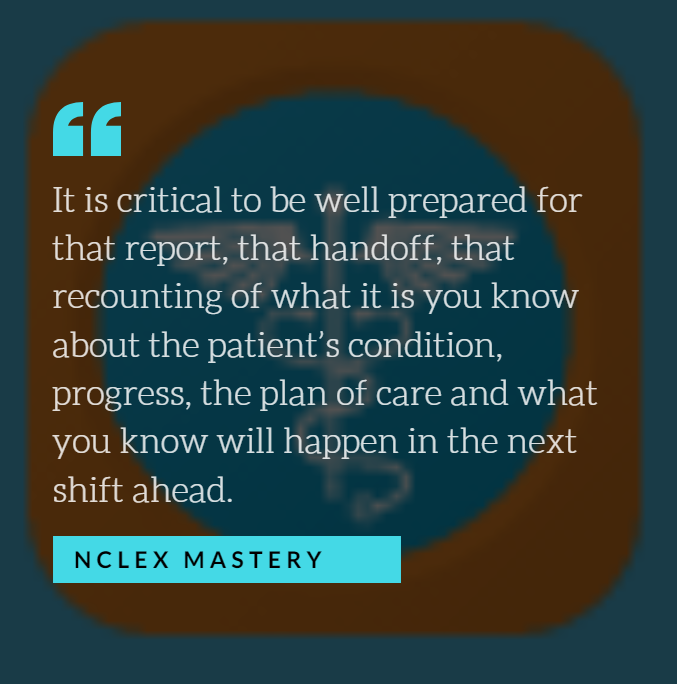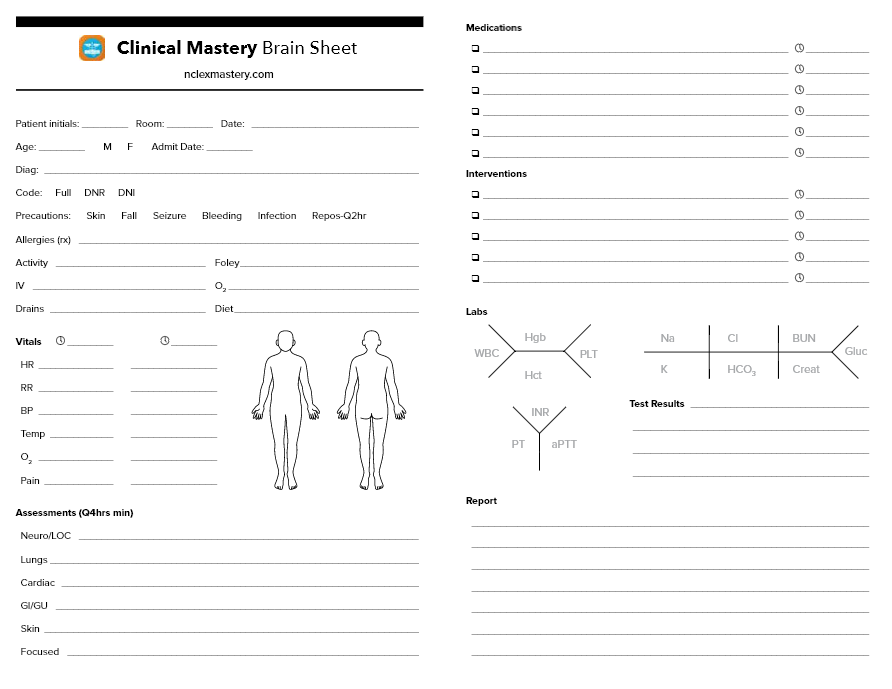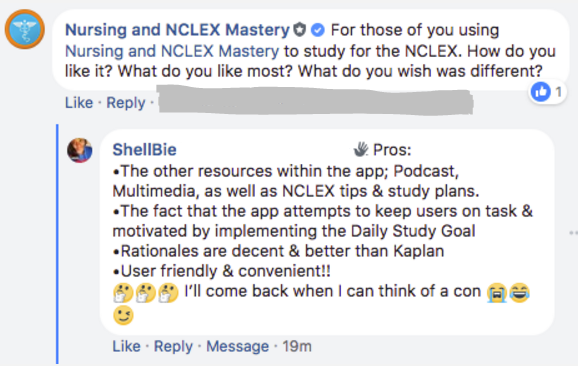Pssst…
Dear soon to be and new nurses,
Stick with me a moment here, and you’ll get a leg up on something that will make a big difference in your outlook on nursing, your new professional peer relationships, and your optimism about your career progress. That’s worth a bit of attention, eh? Let’s paint a picture- one many nurses can attest to as their experience.
You’ve made it. You’ve gone through all the trials, tests, and terrors of nursing school. The graduation ceremony was touching and all your family and friends are proud of you as can be- ‘Oh, Nancy Nurse (or perhaps, Nick Nurse) we’re so proud of you! Good times!'
You curl up with your NCLEX-RN Mastery app and spend time with what is now your new BFF for six weeks. The day of your NCLEX state exam arrives. Seventy-five questions later, the screen clicks off. A few nervous days later, you get the news: you passed. (Well, that’s what happened for me, anyway.)
You are on a roll! More kudos all around, and you dive into the nurse wanted ads, or into the job you had lined up waiting before graduation. A bit of paperwork , orientation begins, and the career pay off - both financial rewards and pursuing your dreams! You spend some days with a mentor, and are left to forge ahead with your career.

The most important interaction you will have with your fellow nurses, where your reputation will get quickly established, and the most important impression you will give your colleagues and supervisors will be affected by one encounter more than any other: shift report.
Overcoming a poor start in that discipline can take a LONG time. And how do I know that? Hmm… it would take another whole post to explain. I’ll simply confess it came up in my first two reviews before I never heard it again.
REPORT. FACE TO FACE HAND OFF OF PATIENTS, NURSE TO NURSE.
You’ve spent the last 12 hours with maybe 4-6 patients (hopefully not more!), and the nurse that is going to take over your position and responsibility has just crawled out of bed, put him or herself together, and driven 40 minutes for the beginning of their 4th 12 hour shift in a row. They have a blank sheet or form in front of them, and whatever attitude they’ve brought with them for the day - sometimes sunny, sometimes - not so much.
What that nurse needs from you is good, organized information for every patient you are about to hand off, so that nurse can hit the ground running and not be blindsided by anything that can be avoided via your provision of all the pertinent particulars for those in your care.

You’ve been scampering all night, passing meds, helping other nurses, documenting everything in concise notes for the medical record, making entries or noting vitals along with the full assessment you’ve done on each patient, and handled any number of little emergencies or urgencies all shift. There have been lots of personal interactions, perhaps some drama, teaching, sharing, and learning.
But when you come to REPORT, you’ll show your peers what it is you really, really know about the patient and how organized your care is. The nurse listening to and looking square at you (or a group of nurses if a ‘group’ report} is assessing everything you say. In many hospitals, report is given not only in front of the oncoming nurse or nurses, but at the patient’s bedside, in their full hearing!
It is critical to be well prepared for that report, that handoff, that recounting of what it is you know about the patient’s condition, progress, the plan of care and what you know will happen in the next shift ahead. During the shift, you’ll likely be carrying around your personal pad of notes.
THE ONCOMING NURSE WILL KNOW YOU CARE ABOUT THEM AND THE PATIENT BY THE COMPLETENESS, QUALITY, AND CONFIDENCE IN YOUR HAND-OFF REPORT.
A wise practice to get into is to put aside some time every shift to organize your thoughts and notes on each patient in a form that you can verbally present in a confident, organized way, for example:
In 342 is Mrs. Smith, a 69 year old female, alert, and oriented times three, that arrived on unit yesterday through our ER with reports of acute back pain. She has a slight accent, but understands English well, and is slightly hard of hearing on the left. She is voiding regularly, but hasn’t had a bowel movement in the last 2 days. Miralax was started today for her bowels.
She ambulates in room with a walker with stand by assistance to and from the bathroom and a medium assist in and out of her bed or chair, with a slow, steady gait. She uses the call bell and bedside controls appropriately. She has been medicated for pain with 2 Percocet Q4H, and we have a chair and bed alarm set for safety, but she hasn’t set them off.
Her assessment is negative with the exception of some slight rales on the left and some redness to her buttocks to which we applied some protective ointment. Her medical MD is Dr. Strangelove, and Dr. Spinefix has been called in on consult, and should see her today….
There will be other details you’ll add - the patient’s diet, whether she’s eating well or not, how she characterizes her pain, and other factors that you’ll want to include; especially any diagnostic tests ahead, planned procedures, MD visits, new orders, and so on- every report has its own twists.

The nurse or nurses coming on shift will, consciously or subconsciously, note:
• Have you described fully the patient’s current condition, or will they find things that you’ve missed on assessment?
• Have you given them the pertinent facts about the patient’s ongoing situation, did you look into their day ahead?
• Do you know and understand the plan of care for this patient, or are you just keeping things afloat during your shift?
• Have you presented the patient to them with the confidence and detail they would expect of a professional, even if you are new to the profession?
• Do you really understand your patient, and your role in their care?
If you’ve followed me this far, it’s obvious that your report/handoffs influence:
• The opinions other nurses form about you- right before you leave work for the day- and they WILL talk about that during their shift.
• The perception of your competence, and that you CARE about the oncoming shift personnel.
• Deliver expectations that reports/handoffs TO you should be at the high quality level that comes FROM you.
Not too far down the road, you’ll be chatting about the “new grads” on the unit - and a lot of your impressions of them will come from giving and receiving reports with them. Reputations on the floor form fast- it’s in the nature of the work; nurses ultimately have to be a quick study about everything, learning on the fly. Get off to a solid start with good handoffs, and good reporting to your peers!

Images:
Nurses giving report: Mennonite Board of Missions Photograph Collection. Mission to La Jara, Colorado. IV-10-7.2 Box 3 Folder 2, Photo 4. Mennonite Church USA Archives - Goshen. Goshen, Indiana. (The evening nursing staff takes report for the day nursing staff as shift changes. From L to R: Ruby Nissley, Mildred Yoder, Vera Rogers and Velma Yoder. Vera Rogers works part time at the La Hara Hospital to make it possible for nursing staff to have days off. She also works full time at another Hospital. 1963.)



